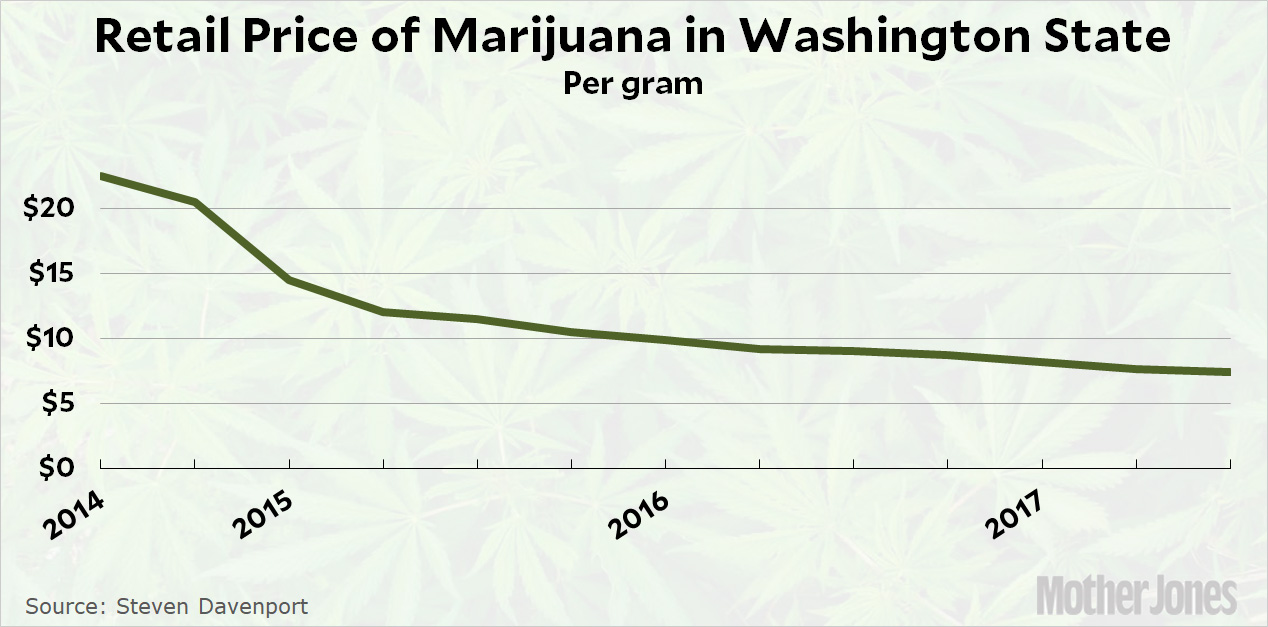Via Keith Humphreys, here’s the result of Washington State’s legalization of marijuana in July 2014:

Humphreys adds this comment:
Prohibition imposes huge costs on drug producing industries that are passed on to consumers in the form of higher prices. These higher prices are one of the principal reasons (the others being stigma and fear of punishment) that illegal drugs are used so much less frequently than legal drugs such as alcohol and tobacco. Marijuana is a rare example where we can see the impact of legalizing a drug in real time, which shows that were the production and sale of heroin, cocaine and methamphetamine also legalized, those drugs would also become dramatically cheaper to consume.
This is a two-sided coin, of course. Advocates for legalization of hard drugs like cocaine and heroin will hail it: if we stop the drug war, prices will fall and drug users will be less likely to resort to crime to raise money for their next hit. Conversely, drug warriors will point out that this shows just how effective drug prohibition is: it keeps prices high and therefore reduces overall consumption.
So which do you want? Higher consumption but (maybe) lower crime? Or lower consumption with (maybe) higher crime? Marijuana doesn’t cause much crime or much societal damage in the first place, so it’s a relatively easy case. But how about meth? Or opioids? That’s a little harder.

















